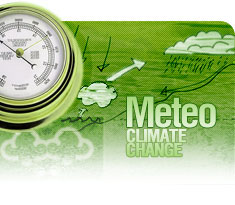https://www.bbc.com/news/uk-scotland-64174150
The Met Office has confirmed that 2022 was Scotland's hottest year on record.
The average temperature was 8.5C, beating the previous record of 8.43C in 2014.
Across the UK, the average annual temperature last year passed 10C for the first time at 10.03C - topping the previous high of 9.88C in 2014.
A study by Met Office scientists has concluded that human-induced climate change has made record annual temperatures 160 times more likely.
All four nations set records for heat in 2022, with England seeing the highest average temperature at 10.94C, followed by Wales (10.23C), Northern Ireland (9.85C) and then Scotland (8.50C).
The year also saw Scotland set its highest ever daily temperature, when it hit 34.8C (94.6F) at Charterhall in the Borders on 19 July.
Dr Mark McCarthy, head of the Met Office National Climate Information Centre, said: "Although an arbitrary number, the UK surpassing an annual average temperature of 10C is a notable moment in our climatological history.
"This moment comes as no surprise, since 1884 all the 10 years recording the highest annual temperature have occurred from 2003.
"It is clear from the observational record that human-induced global warming is already impacting the UK's climate."
The latest data shows that 15 of the UK's top 20 warmest years on record have all occurred this century - with the entire top 10 within the past two decades.
The Met Office said that a UK mean temperature of 10C would have been expected once in 500 years in a natural climate - before humans started producing the emissions that are responsible for climate change through activities such as burning fossil fuels.
But it said this was now likely to occur every three to four years.
Dr McCarthy said: "Even with the influence of climate change we don't expect every year to be the hottest on record from now on.
"Natural variability of the UK climate means there will always be some variation year to year, however looking at longer term trends it is easy to pick out the influence climate change is having over time."
Scotland saw weather extremes in 2022.
A series of water scarcity warnings were issued by the Scottish Environment Protection Agency (Sepa) during the summer months.
The situation in the east of the country gave concern, with water abstraction suspended on the River Tyne in East Lothian, River Ythan in Aberdeenshire and the Lower Tweed in the Borders.
Scotland was also on course for its coldest December in over a decade after the UK's lowest maximum temperature for 12 years was recorded in Aberdeenshire on the 12th.
The Met Office confirmed the highest temperature recorded in Braemar was -9.3C after overnight temperatures plummeted to -15.7C.
And at the end of the year, the south of Scotland fell under an amber warning for heavy rainfall which saw severe flooding in Dumfries and Galloway and major travel disruption.
In 2021, Scotland recorded its coldest winter since 2011 and hottest month since 2013.
The west of Scotland was far drier than usual while the east was wetter.
The annual State of the UK Climate report said higher temperatures were the new normal and highlighted the ways that climate change was affecting the UK.
Scientists have long warned about it and people in developing countries have experienced it but now climate change is being felt on our own soil.
While Scotland might not have broken the double digit average for the year, at 8.5C it's still 0.07C warmer than the previous record set in 2014 and 0.81C above the average since 1990.
While those figures might not sound much, they can still have a profound impact.
Take the summer when many of us were basking in glorious sunshine, dry rivers meant farmers in Fife were losing crops of vegetables and emergency meetings were being convened about whether to declare a food supply crisis.
Warmer weather also increases rainfall intensity leading to flooding, which we've experienced much of in recent months.
Experts are clear that we need to put less carbon dioxide into the atmosphere to slow down the rate of change to our climate and yet the debates still rage about how to do that and the impact on our industries, energy supply and jobs.



 Română
Română English
English


